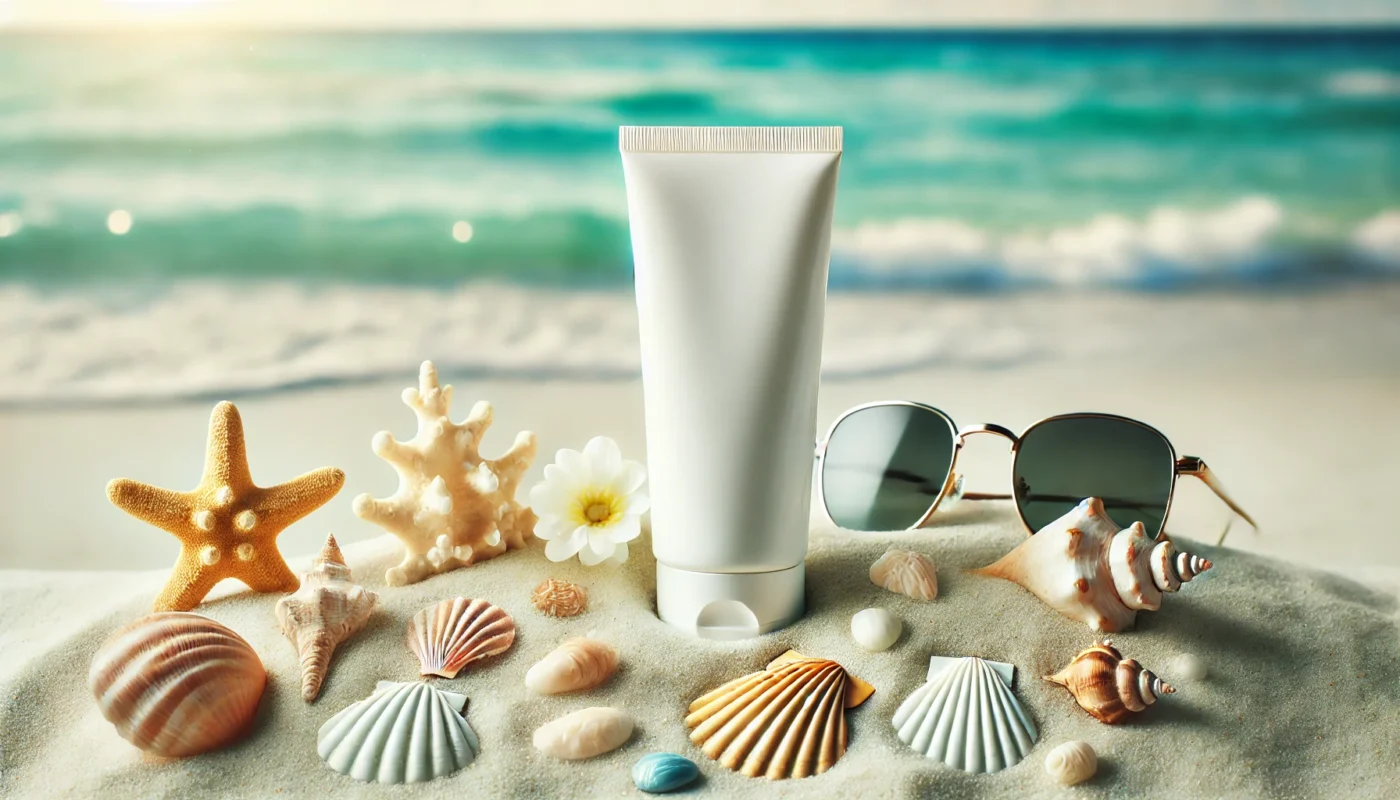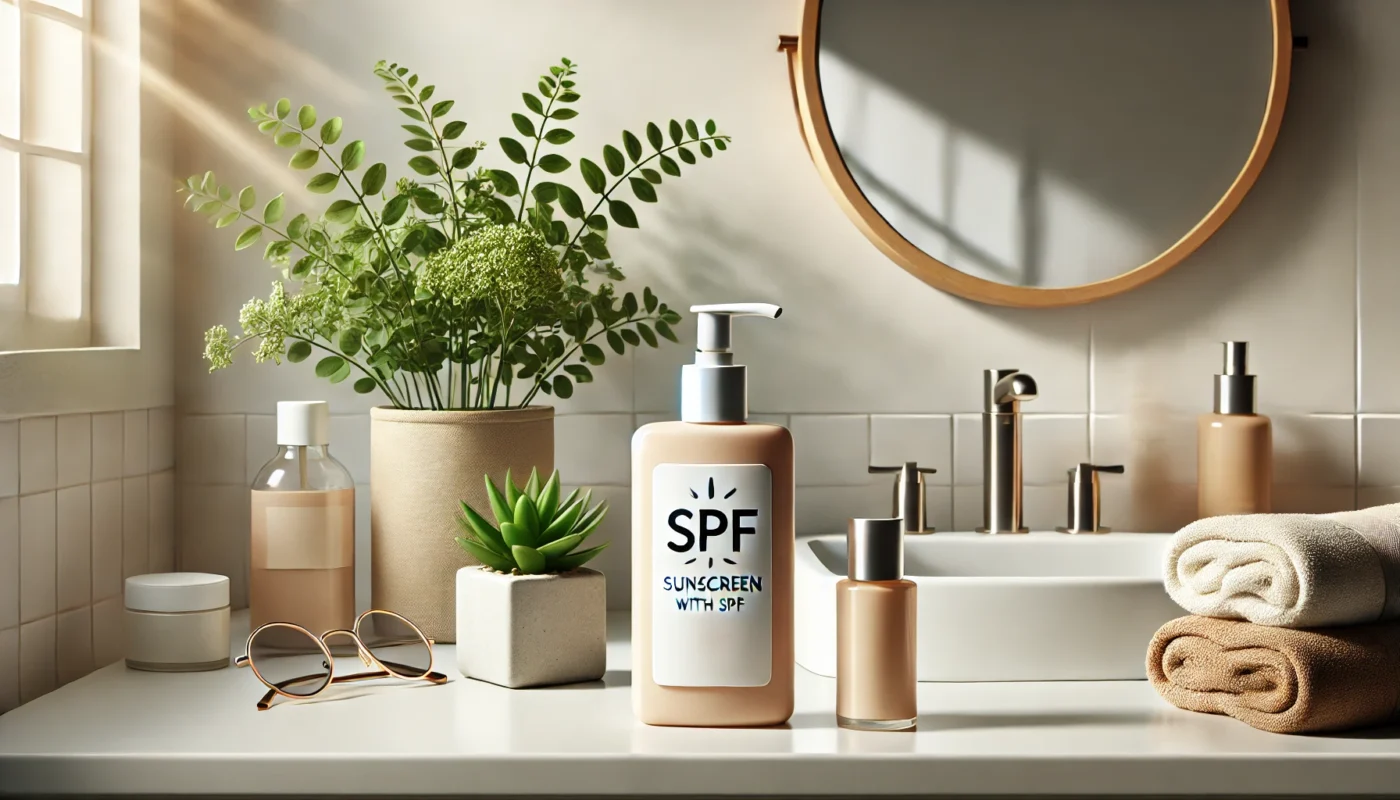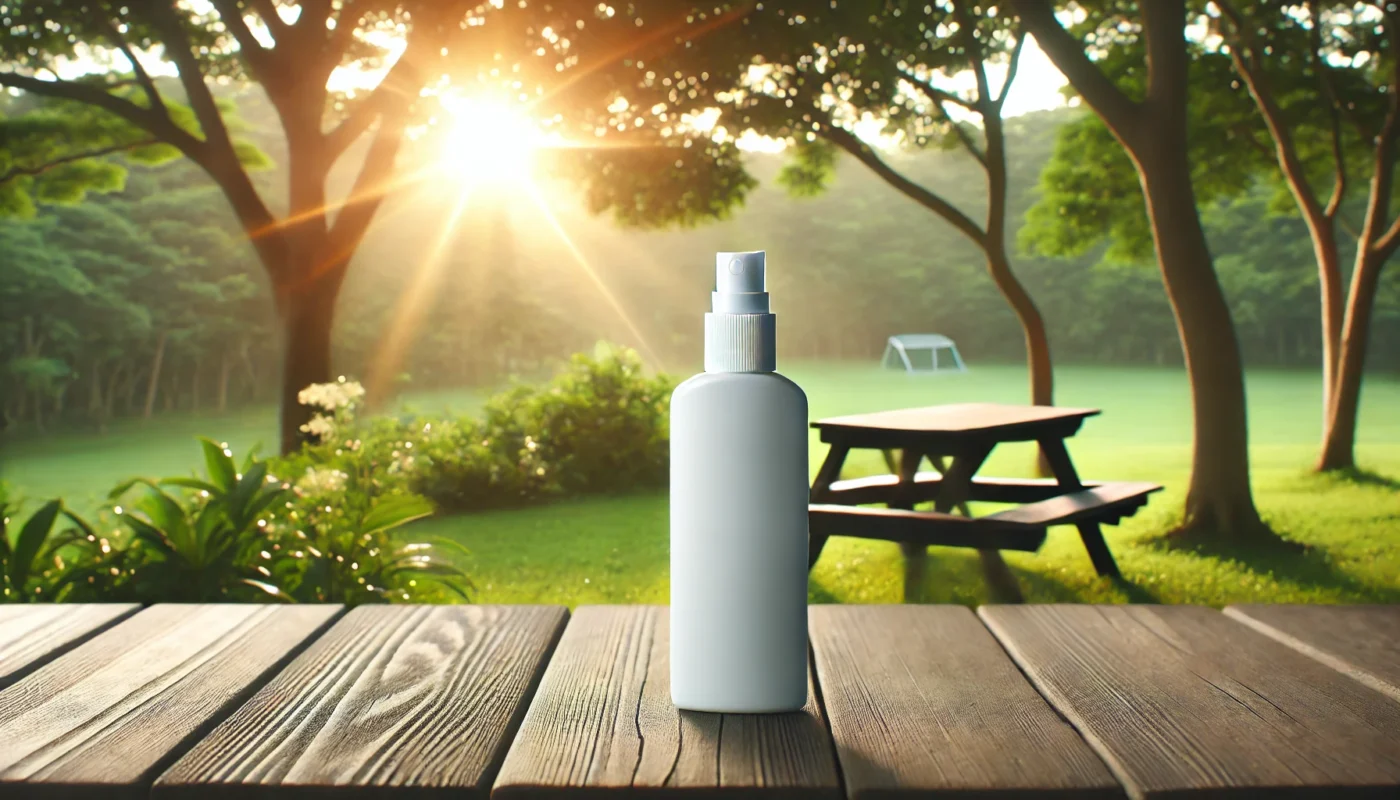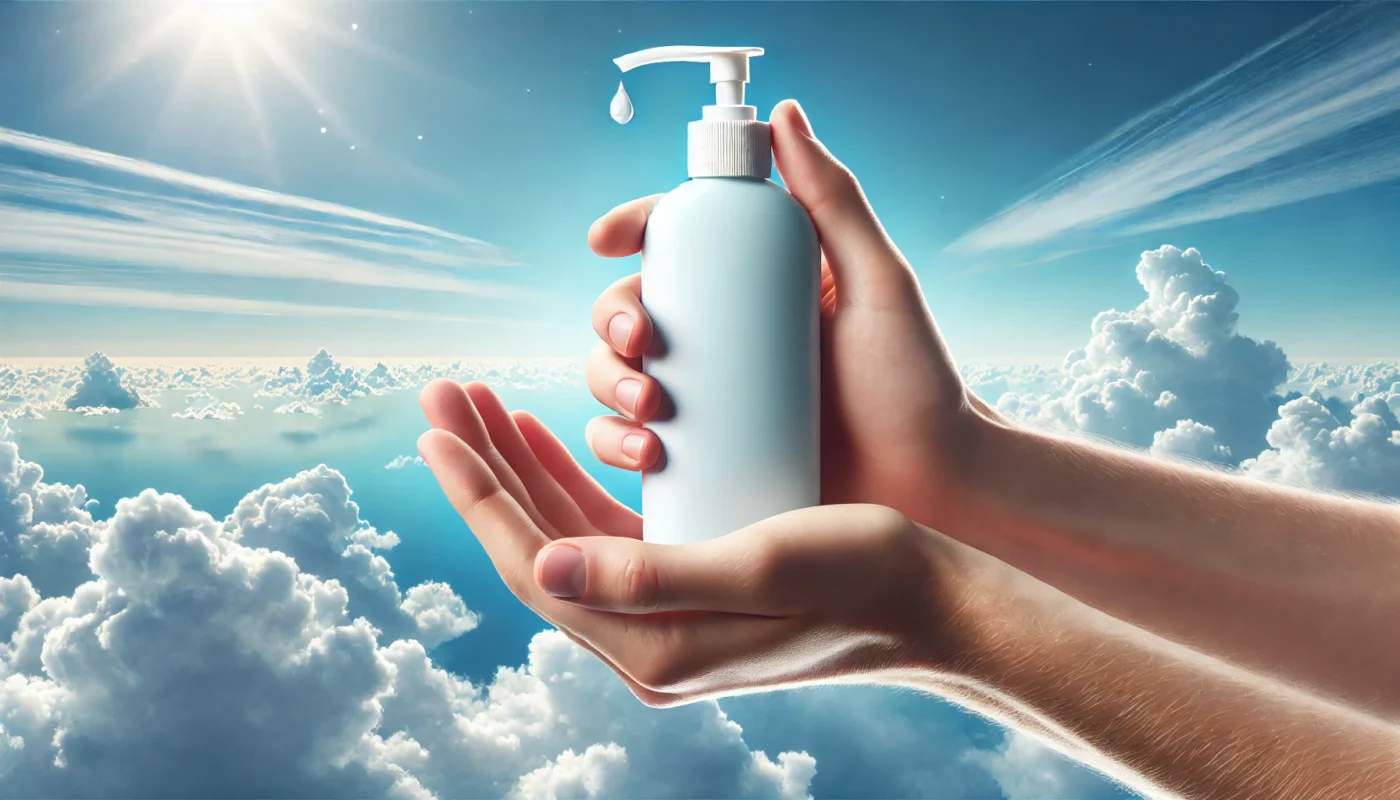When it comes to safeguarding your skin against the sun’s harsh rays, SPF face protection stands as an essential cornerstone in your daily health regimen. While the sun provides us with vital Vitamin D, overexposure can lead to premature aging and skin cancer. In this comprehensive guide, we delve into the nuances of SPF face protection, exploring the best 100 SPF sunscreens for the face, the efficacy of high-SPF lotions, and practical strategies to incorporate these into your skincare routine.
You may also like: Essential Tips for Sun Protection Daily
Understanding SPF: What It Is and Why It Matters
Sun Protection Factor, or SPF, measures how well a sunscreen can protect your skin from UVB rays, the kind that causes sunburn and contributes to skin cancer. However, SPF does not measure UVA protection, which can also penetrate the skin deeply and contribute to aging.
The Science Behind SPF
SPF numbers are often misunderstood. An SPF of 30, for example, doesn’t mean you can stay in the sun 30 times longer without burning. Instead, it means you get 30 times the protection against UVB rays than you would without any sunscreen. This is crucial for understanding how to apply and reapply sunscreen effectively.
The SPF rating is determined through rigorous testing, where sunscreen is applied to a small patch of skin, and the time it takes for the skin to burn is measured. This process ensures that the SPF number accurately reflects the level of protection provided. Understanding this scientific basis helps consumers make informed decisions about their sun protection needs.
Moreover, while the SPF number is a useful guide, it’s important to remember that no sunscreen can offer 100% protection. Factors like skin type, application amount, and environmental conditions all play a role in how effective the product will be. Thus, understanding the science behind SPF can aid in more strategic sun protection practices.
High SPF: Does It Make a Difference?
The leap from SPF 30 to SPF 100 might seem huge, but in reality, SPF 30 blocks about 97% of UVB rays, while SPF 100 blocks 99%. Though the difference might appear marginal, for individuals with sensitive skin or conditions that heighten sun sensitivity, these extra percentages matter significantly.
For those with a history of skin cancer or a family predisposition, opting for higher SPF levels can provide added peace of mind. The enhanced protection offered by high-SPF products can make a significant difference for these vulnerable groups. Additionally, those living in areas with intense sunlight year-round may benefit from using products with higher SPF ratings to mitigate the cumulative effects of sun exposure.
It’s also worth noting that high-SPF sunscreens can be particularly beneficial during activities that involve prolonged sun exposure, such as hiking, skiing, or swimming. In these scenarios, the added protection can be crucial in preventing sunburn and long-term skin damage, especially since reapplication might be less frequent.
The Importance of UVA and UVB Protection
While SPF focuses on UVB protection, it’s essential to consider products that offer broad-spectrum coverage, including UVA protection. UVA rays, while less intense than UVB, penetrate the skin more deeply and are responsible for much of the skin’s aging process.
Choosing sunscreens labeled as “broad-spectrum” ensures you’re receiving protection from both UVA and UVB rays. This dual protection is crucial for maintaining skin health and preventing premature aging and damage. Understanding the different types of UV radiation can help you choose the most effective product for your needs.
Investing in a sunscreen that offers comprehensive protection can also provide long-term benefits in terms of skin appearance and health. By shielding your skin from both types of rays, you reduce the risk of wrinkles, fine lines, and other signs of aging, while also minimizing the risk of skin cancer.
Best 100 SPF Sunscreens for Face
Selecting the right SPF product for your face involves understanding your skin type and personal needs. Here’s a detailed look at some top contenders in the market.
Neutrogena Ultra Sheer Dry-Touch Sunscreen SPF 100
This product is renowned for its weightless feel and non-greasy finish, making it ideal for everyday use. It’s a favorite among dermatologists for its broad-spectrum protection and water resistance.
The formulation is designed to absorb quickly without leaving a sticky residue, making it perfect for those with oily or combination skin. Its lightweight nature ensures it doesn’t clog pores, reducing the risk of breakouts. This makes it a top choice for those who want effective protection without the heaviness of traditional sunscreens.
Moreover, the Neutrogena Ultra Sheer Dry-Touch Sunscreen is also praised for its ability to stay put during intense activities, such as sports or outdoor adventures. Its water-resistant properties mean it continues to protect even when you’re sweating or swimming, providing reliable coverage throughout the day.
La Roche-Posay Anthelios Melt-in Milk Sunscreen SPF 100
Known for its advanced UVA/UVB protection, this sunscreen also offers antioxidants that fight free radicals. It’s particularly suitable for those with sensitive skin, thanks to its hypoallergenic formula.
The melt-in texture of this sunscreen ensures it spreads easily across the skin, providing a uniform layer of protection without any white cast. This feature is especially beneficial for individuals with darker skin tones who may struggle with other sunscreens. The antioxidant-rich formulation also supports skin health by combating oxidative stress caused by sun exposure.
La Roche-Posay’s commitment to sensitive skin makes this product a go-to for individuals who experience irritation or allergic reactions with other sunscreens. Its gentle, fragrance-free formula reduces the risk of adverse reactions while maintaining high levels of sun protection, making it a trusted choice for sensitive skin.

Coppertone Sport Sunscreen Lotion SPF 100
Designed for active lifestyles, this sunscreen provides robust protection that withstands sweat and water. It’s ideal for fitness enthusiasts who engage in outdoor activities and need long-lasting protection.
The Coppertone Sport Sunscreen Lotion is engineered to stay effective even during high-intensity activities, making it a reliable companion for athletes and outdoor adventurers. Its water-resistant formula ensures that it remains effective for up to 80 minutes, even when exposed to water or sweat. This durability is essential for those who spend extended periods outdoors and need consistent protection.
Furthermore, the non-greasy texture of this lotion allows it to be applied smoothly without leaving a shiny finish. This feature is particularly appealing for those who are constantly on the move and require a sunscreen that won’t interfere with their active lifestyle. The quick absorption rate also means less downtime between application and activity, allowing users to get back to their routines swiftly.
Best SPF Lotions for Comprehensive Face Care
Facial SPF lotions are a must for those who seek an all-in-one approach to skincare and sun protection. These lotions not only protect but also hydrate and nourish the skin.
CeraVe AM Facial Moisturizing Lotion SPF 30
While not 100 SPF, this well-rounded product combines moisturizing and sun protection benefits. It’s infused with essential ceramides and niacinamide, enhancing skin barrier integrity.
The inclusion of ceramides helps to restore and maintain the skin’s natural barrier, which is crucial for retaining moisture and protecting against environmental stressors. Niacinamide further enhances the product by calming inflammation and reducing redness, making it suitable for sensitive or acne-prone skin. This dual-action of hydration and protection makes it an everyday staple for those looking to simplify their skincare routine.
CeraVe’s AM Facial Moisturizing Lotion is also praised for its non-comedogenic properties, meaning it won’t clog pores. This feature is particularly beneficial for individuals who are prone to breakouts and need a sunscreen that won’t exacerbate skin issues. By providing both hydration and sun protection, this lotion simplifies morning routines while ensuring skin is well-prepared for the day.
Olay Total Effects 7 in One Face Moisturizer SPF 30
This lotion fights seven signs of aging while providing essential SPF protection. It’s perfect for those looking to simplify their skincare routine without compromising on efficacy.
Olay’s Total Effects moisturizer is formulated to address multiple skin concerns, including fine lines, uneven tone, and dullness. The inclusion of SPF 30 means that it not only fights existing signs of aging but also helps prevent future damage caused by UV exposure. This all-encompassing approach makes it a popular choice for those seeking an efficient skincare solution.
The lightweight texture of this moisturizer allows for easy application, absorbing quickly without leaving a greasy residue. This makes it suitable for all skin types, including oily and combination skin. By combining anti-aging benefits with sun protection, this product offers a comprehensive solution for maintaining youthful, healthy skin.
Choosing the Right SPF Lotion for Your Skin
When selecting an SPF lotion, consider your skin type and any specific concerns you may have. Those with dry skin might benefit from a more hydrating formula, while individuals with oily skin should look for oil-free options.
Understanding your skin’s unique needs will guide you in choosing the most effective product. For example, if you have sensitive skin, look for hypoallergenic formulations free from fragrances and dyes. Those with mature skin may prioritize products that offer anti-aging benefits alongside sun protection.
Ultimately, the best SPF lotion is one that you will use consistently. By selecting a product that aligns with your skincare goals and preferences, you ensure that sun protection becomes an integral part of your daily routine, safeguarding your skin from damage and promoting overall health.

Incorporating SPF into Your Daily Routine
Incorporating SPF into your routine is about more than just slathering on sunscreen before a beach day. Here’s how to integrate it seamlessly:
Morning Rituals
Start your day with a facial cleanser to remove impurities, followed by a toner to balance your skin’s pH. Apply an SPF moisturizer as your final step before makeup. This not only protects your skin but also primes it for the day ahead.
Incorporating SPF into your morning routine helps create a protective barrier against the day’s UV exposure. Choosing a moisturizer with built-in SPF can save time while ensuring comprehensive coverage. If you wear makeup, look for products that also contain SPF to enhance your protection throughout the day.
Consider setting a reminder on your phone or placing your sunscreen near other morning essentials to ensure you don’t forget this crucial step. Making SPF application a non-negotiable part of your morning routine will help protect your skin consistently over time.
Reapplication Techniques
For prolonged sun exposure, reapplication is key. Keep a travel-sized SPF lotion in your bag for touch-ups every two hours, especially after sweating or swimming.
Using a spray or stick sunscreen can make reapplication quick and convenient, especially when you’re on the go. These formats are less messy and can be applied over makeup without disturbing your look. Keep these handy in your bag, car, or office to ensure you’re never caught without protection.
It’s also helpful to establish a routine for reapplication, such as setting a timer or reapplying during breaks or meals. By creating a habit around sunscreen reapplication, you ensure continuous protection throughout the day, minimizing the risk of sunburn and long-term damage.
Nighttime Recovery
After sun exposure, use a gentle cleanser and a hydrating serum to replenish your skin. Products with aloe vera or chamomile can soothe any irritation or redness.
Incorporating an antioxidant-rich serum into your nighttime routine can help repair any damage caused by UV exposure during the day. Ingredients like vitamin C and E can neutralize free radicals, promoting skin repair and regeneration. A good nighttime routine complements your daily SPF use by ensuring your skin remains healthy and resilient.
Additionally, consider using a moisturizer with hyaluronic acid to boost hydration levels overnight. This helps counteract any drying effects of sun exposure, leaving your skin soft and supple by morning. A well-rounded nighttime skincare routine ensures that your skin is ready to face another day of sun exposure with strength and vitality.
Practical Advice for Health Enthusiasts
For those passionate about holistic health, understanding the impact of sun exposure is integral. Here’s how you can align SPF use with your health goals:
Balancing Sun Exposure
While avoiding sunburn is crucial, small amounts of unprotected sun exposure (around 10-15 minutes) can help maintain healthy Vitamin D levels. Balance is key—use SPF during peak hours and enjoy the sun in moderation.
Consider incorporating sun exposure into your daily routine by taking short walks outside during non-peak hours. This allows you to reap the benefits of sunlight without overexposing your skin. Remember to apply sunscreen before heading out and reapply if you plan to stay outside for longer than a few minutes.
It’s also important to balance sun exposure with dietary sources of Vitamin D, such as fortified foods or supplements if necessary. This ensures you maintain adequate levels without risking skin damage, supporting both your skin and overall health.
Understanding Your Skin Type
Your skin type dictates the kind of SPF product best suited for you. Oily skin types benefit from oil-free formulations, while dry skin finds relief in hydrating SPF lotions.
Identifying your skin type can help you choose products that complement your skin’s natural tendencies. For example, if you have combination skin, you might need to use different products on different areas of your face. Tailoring your SPF choices to your skin type ensures optimal protection without exacerbating any skin issues.
Consider consulting a dermatologist if you’re unsure about your skin type or have specific concerns. They can provide personalized recommendations to help you achieve the best results from your sun protection products.
Embracing Antioxidant-rich Diets
A diet rich in antioxidants can boost your skin’s natural defenses against UV damage. Foods like berries, nuts, and leafy greens can enhance your skin’s resilience.
Incorporating a variety of colorful fruits and vegetables into your diet ensures you’re getting a broad spectrum of antioxidants. These nutrients help neutralize free radicals, reducing oxidative stress and supporting skin health from the inside out. Drinking green tea or adding a handful of nuts to your meals are easy ways to increase your antioxidant intake.
Additionally, staying hydrated supports skin health by maintaining moisture levels and facilitating the elimination of toxins. Aim to drink plenty of water throughout the day and consider incorporating hydrating foods like cucumbers and watermelon into your diet for added benefits.

Conclusion
SPF face protection is more than a summer skincare step—it’s a year-round commitment to your skin’s health. By choosing the right products and integrating them into your daily routine, you can enjoy the sun safely while preserving your skin’s youthful glow. Armed with this guide, you’re now ready to navigate the world of SPF face protection with confidence and ease.
Remember, the best SPF product is the one you will use consistently. So, explore these options, find what works for you, and embrace the sun safely and healthily. Being proactive about sun protection is an investment in your skin’s future, ensuring that you can enjoy the outdoors without compromising your skin’s integrity. As you integrate SPF into your lifestyle, you’ll find that protecting your skin becomes second nature, leading to a healthier, more vibrant complexion year-round.
Further Reading:
A Dermatologist’s Ultimate Guide to the Best Sunscreens for Kids
Ask the Expert: Does a High SPF Protect My Skin Better?
SPF, sunscreen, sun protection, skincare, facial sunscreen, skincare routine, UVA protection, UVB protection, best sunscreen, high SPF, skin health, daily skincare, moisturizing lotion, sun safety, antioxidants, healthy skin, anti-aging, outdoor protection.
Important Note: The information contained in this article is for general informational purposes only, and should not be construed as health or medical advice, nor is it intended to diagnose, prevent, treat, or cure any disease or health condition. Before embarking on any diet, fitness regimen, or program of nutritional supplementation, it is advisable to consult your healthcare professional in order to determine its safety and probable efficacy in terms of your individual state of health.
Regarding Nutritional Supplements Or Other Non-Prescription Health Products: If any nutritional supplements or other non-prescription health products are mentioned in the foregoing article, any claims or statements made about them have not been evaluated by the U.S. Food and Drug Administration, and such nutritional supplements or other health products are not intended to diagnose, treat, cure, or prevent any disease.

